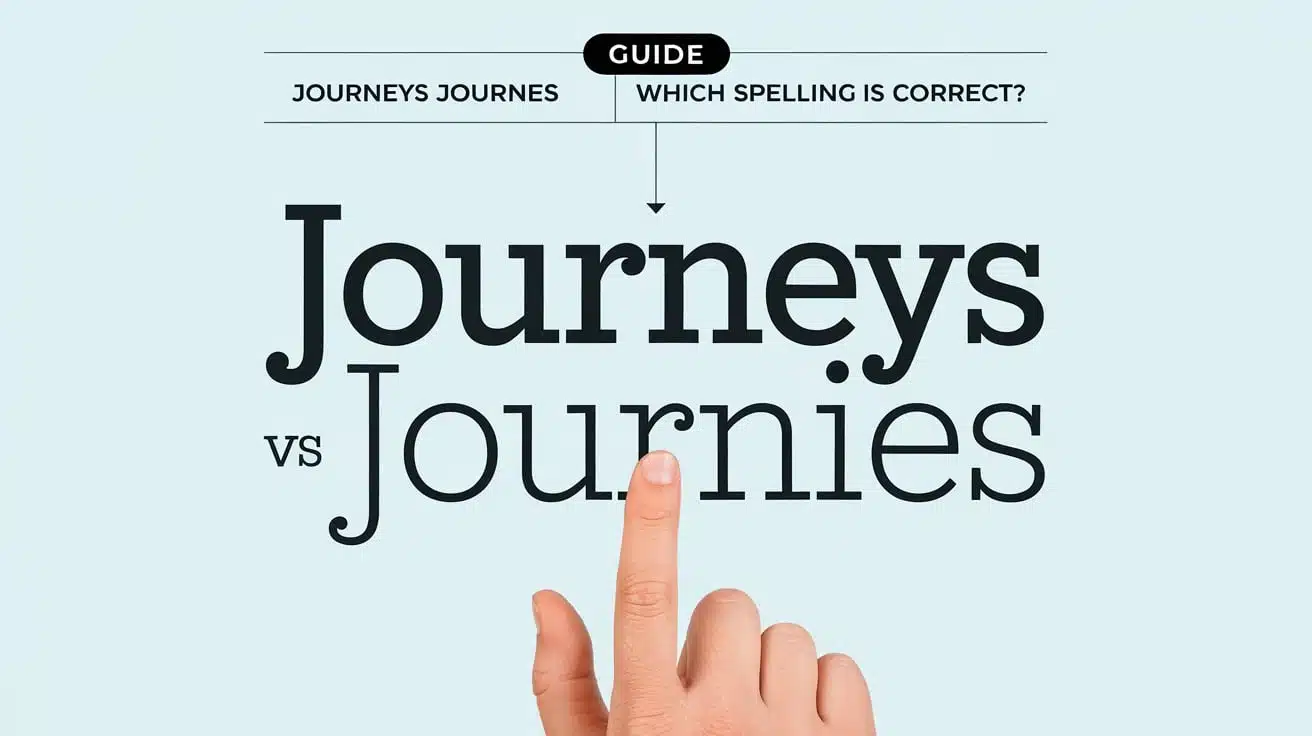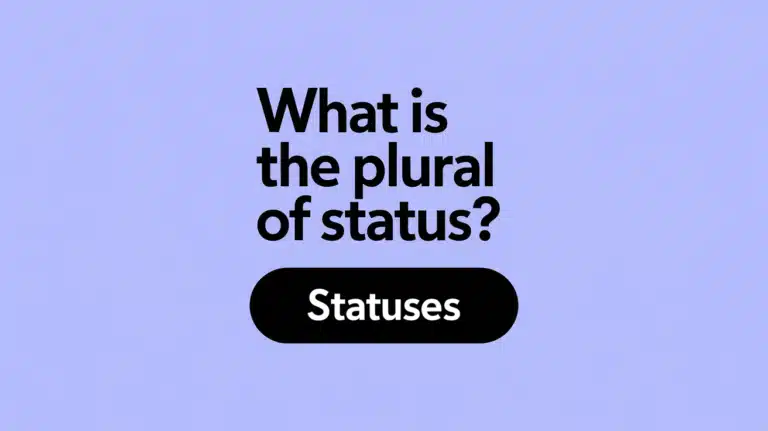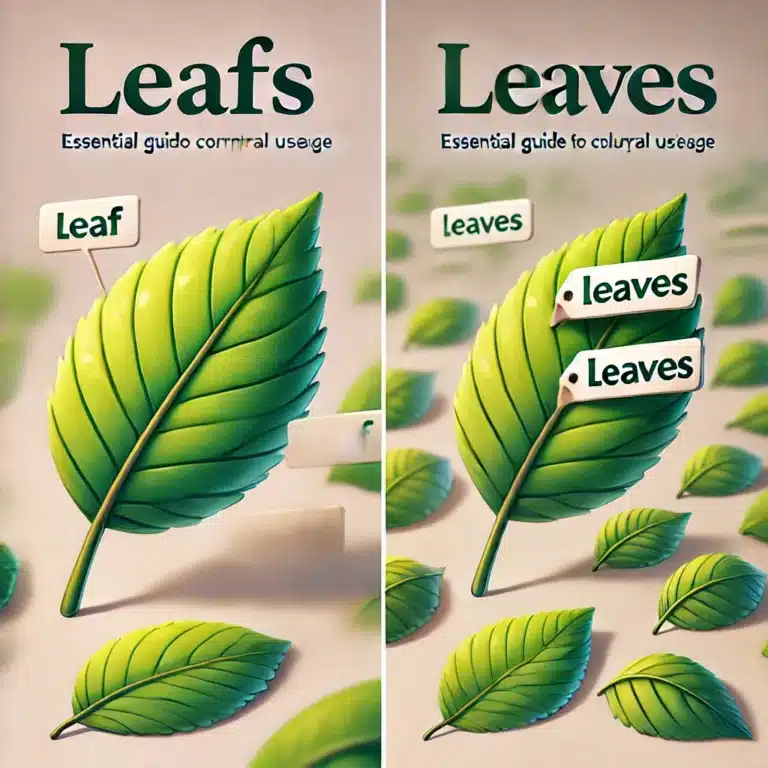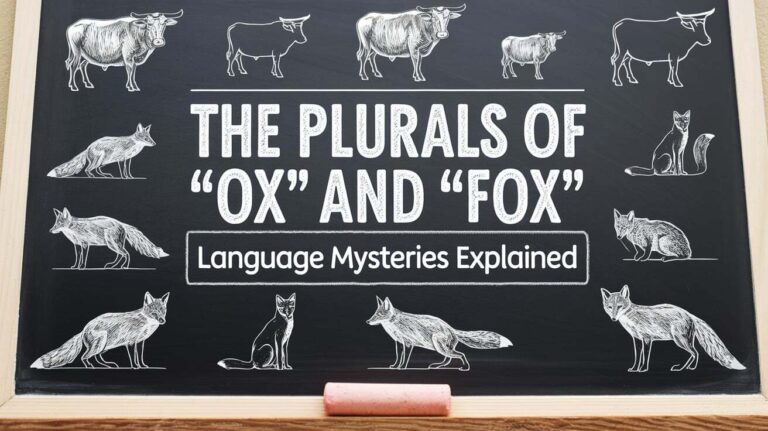The Ultimate Guide to Spelling ‘Journeys’: Mastering the Correct Plural Form
Journeys vs journies:
Are you confused about whether to write “journeys” vs “journies”? Don’t worry—you’re not alone! In this guide, we’ll clear up the confusion and show you the correct way to pluralize “journey.” Whether you’re talking about trips, work travels, or personal experiences, getting it right is important. Let’s finally settle this debate!
The Definitive Answer: Why It’s Always ‘Journeys’
English can be tricky, but some rules are crystal clear. When it comes to forming the plural of ‘journey,’ there’s no room for debate – it’s always journeys. Here’s why.
The Y-to-IES Rule in English
The confusion often stems from the common rule about words ending in ‘y.’ Here’s the breakdown:
- When a word ends with a consonant + y, drop the y and add ies
- When a word ends with a vowel + y, simply add s
‘Journey’ ends with ‘ey’ (vowel + y), so we just add ‘s’ to form the plural.
Examples of vowel + y words:
- Key → Keys
- Monkey → Monkeys
- Valley → Valleys
- Journey → Journeys
History and Historical Development
The word ‘journey’ traces its roots to Middle English ‘jornee,’ derived from Anglo-French ‘journée,’ meaning “a day’s travel or work.” This history explains why we maintain the ‘ey’ ending in modern English.
Read More About : A Comprehensive Guide on:What is the Past Tense of ‘Seek’? Is it ‘Seek’ or ‘Sought’?
Grammar Deep Dive: Pluralization Rules
Understanding plural rules helps prevent common mistakes in English terms. Let’s explore this through a comprehensive table:
| Word Pattern | Rule | Examples |
|---|---|---|
| Vowel + y | Add s | journeys, monkeys, keys |
| Consonant + y | Drop y, add ies | cities, babies, stories |
| Regular nouns | Add s | cars, books, phones |
Vowel + Y Words
The standard plural rule for words ending in a vowel and y is straightforward – just add s. This applies to:
- Surveys → Surveys
- Trolleys → Trolleys
- Chimneys → Chimneys
Consonant + Y Words
Words ending in a consonant followed by y follow a different rule:
- City → Cities
- Baby → Babies
- Story → Stories
Common Mistakes and Misconceptions
Digital Age Impact
Modern technology has influenced how we write and spell Journeys vs journies. Search trends show that “journies” appears frequently in online content, but it’s incorrect. Popular autocorrect systems usually catch this error, suggesting the correct form “journeys.”
“In the digital age, incorrect spellings can spread rapidly through social media, making it crucial to verify proper forms.” – Oxford English Dictionary Editor
International English Variations
While many English rules vary between regions, the plural of journey remains consistent:
- American English: Journeys
- British English: Journeys
- Australian English: Journeys
- Canadian English: Journeys
Using ‘Journeys’ in Context
Professional Writing
When crafting business communications or technical documentation, proper spelling enhances credibility. Here are some professional applications:
Correct Usage Examples:
- “Our company specializes in creating memorable customer journeys.”
- “The software tracks user journeys across multiple platforms.”
- “These business expeditions and journeys shaped our corporate culture.”
Creative Applications
In creative writing, ‘journeys’ often appears in both literal and metaphorical contexts:
- Life journeys
- Spiritual voyages
- Adventure narratives
- Travel expeditions
Quick Reference Guide
Memory Tricks
Remember this simple mnemonic: “If there’s a vowel before y, adding s is no lie!”
Quick Tips:
- Look for the ‘e’ before ‘y’
- If you see it, just add ‘s’
- Never drop the ‘y’ in ‘journey’
Pronunciation Guide
The plural form maintains the same pronunciation pattern:
- Journey /ˈdʒɜːni/
- Journeys /ˈdʒɜːniz/
FAQs About ‘Journeys’
Q: Is journey’s plural always formed with ‘s’?
A: Yes, because it ends in vowel + y.
Q: Can ‘journies’ ever be correct?
A: No, ‘journies’ is always incorrect.
Q: How do you use ‘journeys’ in a sentence?
A: “Life’s greatest journeys often begin with small steps.”
Key Takeaways
Master these points to never misspell ‘journeys’ again:
- The correct plural is always ‘journeys’
- Remember the vowel + y rule
- Never use ‘journies’
- Apply this rule to similar words (valleys, monkeys)
Practical Applications:
- Travel writing
- Business documentation
- Academic papers
- Personal narratives
Whether you’re writing about flights, excursions, or metaphorical journeys, remember that the proper plural form enriches your writing and maintains professional standards. Keep these rules in mind as you document your own adventures and expeditions through life.







